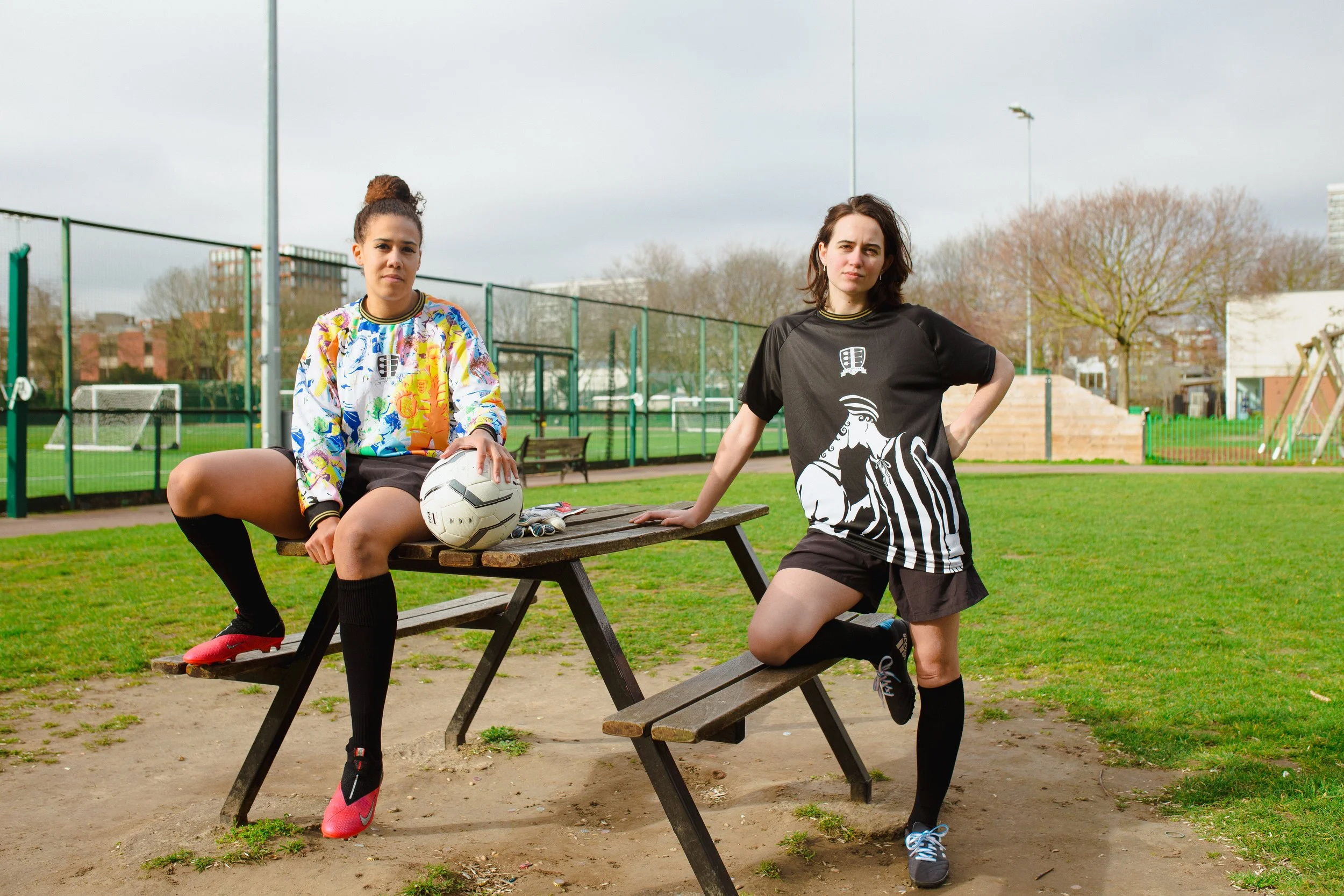In 1921, the FA decreed “football is quite unsuitable for women and ought not to be encouraged” and enforced a 50 year ban on the game. The ripples of this ban are still being felt today, from grassroots all the way up to the professional game.
I was approached by Goal Diggers FC to produce a set of shirts to commemorate the ban. I was introduced to the joys of football through Goal Diggers FC and its positive and inclusive outlook, so it was important to me that the tone and messaging around the kit was one of joy. We wanted to tell the story of 100 years from the beginning of the ban to the present day, so I built a set of visual references which would allow for this: designs which featured portraits and told a narrative visually through pattern. These spanned from Louis Vuitton’s SS2020 collection, Dickie’s overalls through to the kit for a French grassroots women’s team, the Cacahuètes Sluts. I brought these far-reaching influences together using a colour palette and visual identity which spoke to previous Goal Diggers kits: black, white and gold.
Throughout the design process, I knew that I did not want to use any references of fashion from the men’s game. Which largely translated to: a move away from geometric patterns. Too often, women’s football kit designs are modelled from their male counterparts, rather than having designs built around the distinct needs of their bodies.
As the club is comprised of non-binary people, trans and cis women, I didn’t want the fit, or the design of the shirt to feel like it was centred around slim, white, cis women. I wanted to make sure that the design felt comfortable for every body so we ensured that the members of the club were able to feedback at various points of the design stage.
Keeper shirts need to be brightly coloured and distinct from the outfield players. The most appropriate colours I could think to use were the ones from the progress pride flag. This visually links the kit to another protest as celebration, and recognises the queerness represented throughout the history of women’s football. A point of pride, which is so sorely lacking in the men’s game. I wanted to overlap each of the illustrations to show how each of the footballers we are celebrating on our kit have fed into each other’s narratives. The work they have done on and off the pitch has paved the way for each other.
The final shirt designs feature a large ‘1921’ in lieu of individual numbers. We wanted to draw attention to the date we were commemorating. The omission of individual numbers also contravenes FA regulations, so it felt fitting, as the kit is a protest against a decision made by the FA 100 years ago. Having all of our members wear the same number on the back of the shirt also accentuates the fact that we are a collective, not a collection of individuals.




